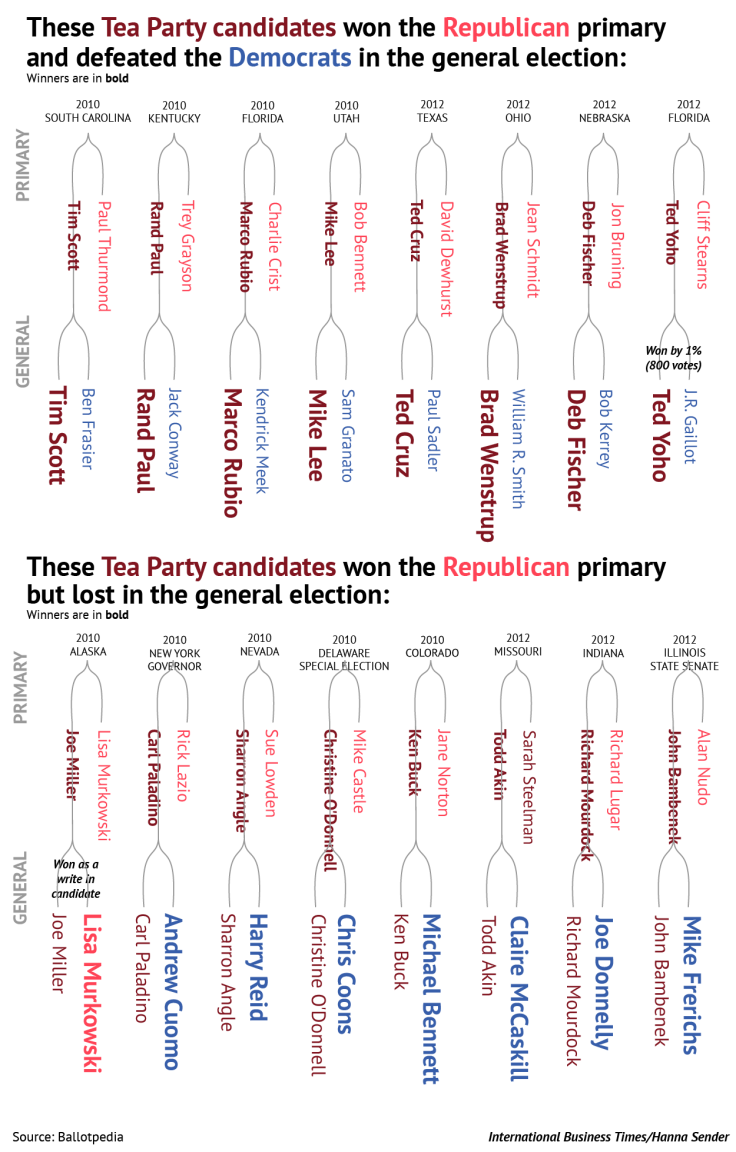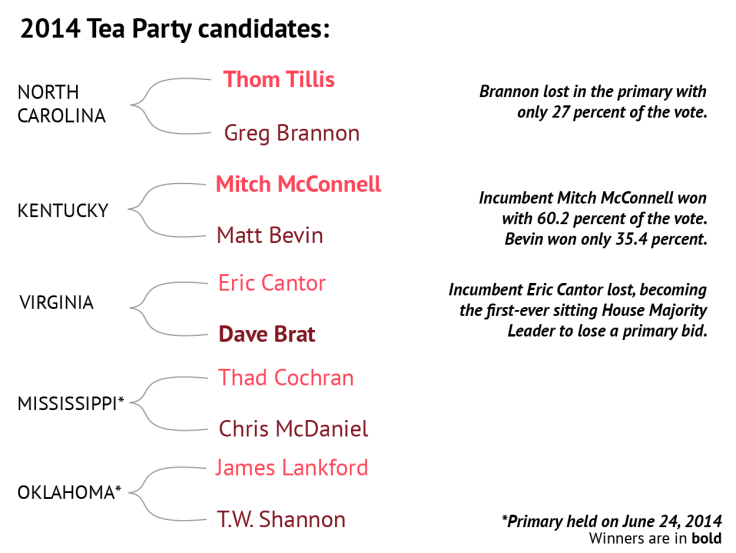In Light Of GOP Primaries, A Look At Tea Party Upsets [Infographic]

What do a doctor, a veterinarian and an attorney have in common? Scarcely any political experience -- and still finding themselves in the warm embrace of the tea party.
The shocking defeat of soon-to-be-former House majority leader Eric Cantor by an obscure tea party candidate proved yet again that even with an impressive résumé and a solid conservative record, you can still lose to a college economics professor with essentially no political credentials.
Since the tea party rose to influence in 2009, the populist upsurge has endorsed dozens of unknowns, many of whom defied logic by uprooting establishment Republican in bids for Congress.
In 2010, the New York Times identified some 138 candidates for Congress with significant tea party support. All of them were running as Republicans. Of those candidates, one-third were elected to the Senate or the House.
In 2012, four of 16 tea party candidates won a seat in the Senate, and Tea Party Caucus founder Michele Bachmann was re-elected to the House.
The current congressional primary season offers plenty of tea party challengers. In most cases, Republican incumbents and establishment primary candidates have bested their right-wing opponents.
Over the past six weeks, tea party candidates came up short in GOP primaries in North Carolina, Kentucky, Georgia and Oregon.
In Mississippi, Sen. Thad Cochran, a moderate conservative and nearly 40-year incumbent, is in a tight race with tea party-backed state legislator Chris McDaniel. The most recent polling shows McDaniel with a 3 percent lead. Tennessee Sen. Lamar Alexander and Kansas Sen. Pat Roberts also find themselves facing tea party challengers.
As Republican incumbents brace for the upcoming elections, here’s a look back at some of the more notable tea party upsets:


© Copyright IBTimes 2024. All rights reserved.






















